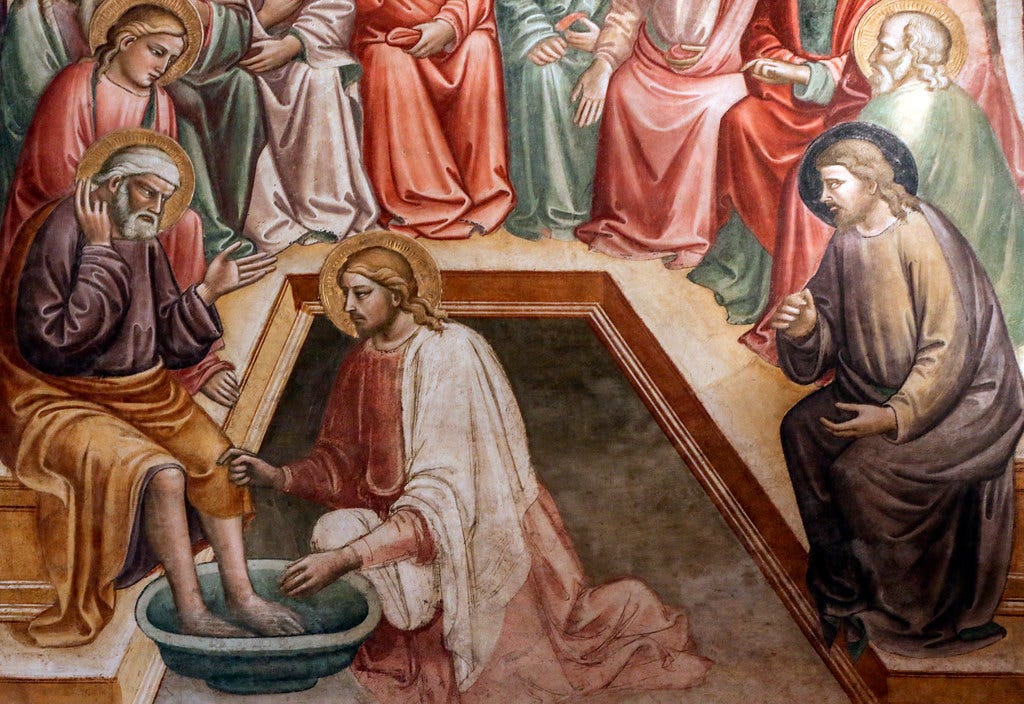Introduction
Jesus is the heart and soul of each Gospel Enquiry, and our relationship with him the reason for reflecting on the Gospel. Cardinal Joseph Cardijn (1882-1967) provides an explanation of the part the Gospel plays in the life of the young worker. The following statement comes from the first of three lectures on person, family and education, which he delivered in Godinne in 1950:
The gospel really explains the human person; it is the explanation of Our Lord Jesus Christ, that admirable person, the Son of God, with a mission and a vocation to fulfil. When we see the person of Our Lord we then understand to what a dignity God intends to call people. It was Our Lord who said: “You will love the poorest as you love me; you cannot love God unless you love people, and especially the poorest and the humblest.”
When he was still a child, Cardijn discovered his dignity through his commitment to Christ, a commitment that saw him spend his life trying to form young workers in the image of Christ. He urged them to think of themselves as Christ’s apostles to the working class. During the war, when Belgium suffered under German occupation, members of YCW provided milk and bread to poor families and kept them informed about when Mass would be celebrated in their area. Cardijn helped them to put their faith into action.
We are told that faith without works is dead. Young workers kept their faith alive through asking themselves what Jesus would do in their situation and then acted accordingly. They loved God through loving their neighbour in need.
The Gospel
After he had washed the feet of his disciples, Jesus said to them:
‘I tell you most solemnly, no servant is greater than his master, no messenger is greater than the man who sent him.
‘Now that you know this, happiness will be yours if you behave accordingly. I am not speaking about all of you: I know the ones I have chosen; but what scripture says must be fulfilled: Someone who shares my table rebels against me.
‘I tell you this now, before it happens, so that when it does happen you may believe that I am He. I tell you most solemnly, whoever welcomes the one I send welcomes me, and whoever welcomes me welcomes the one who sent me.’ (John 13:16-20)
The Enquiry
See
What does Jesus teach us about the place of hospitality, of serving others, in our world?
Why does Jesus say that “no servant is greater than his master”?
What beliefs, values and attitudes does Jesus want people to embrace and uphold?
Judge
What do you think about Jesus taking on the role of the servant to his disciples and washing their feet? In which part of your life, do your actions resemble the action of Jesus?
Where in the society you experience would the example of Jesus be relevant and life-changing?
Consider the beliefs and values you hold and the attitudes you display: what is there in these aspects of your life that is challenged by what Jesus teaches here?
Act
What needs to change in the world so that what Jesus did and said as recorded in John’s Gospel is embraced and celebrated?
What small action can you carry out to help bring about the change that is demonstrated by Jesus?
Who can you involve in your action, when, where and how often?
Image Source: Fr Lawrence Lew OP (Creator) Jesus washes St Peter’s feet: Fresco in the pharmacy of Santa Maria Novella in Florence, the oldest pharmacy in the world, Flickr, CC BY-NC-ND 2.0
Worth reading: Challenge to Action, a collection of Joseph Cardijn’s writings.



"Cardijn helped them to put their faith into action." This is spot on. We come to experience faith often through contemplation. And contemplation leads us to action, innovation, education, and collaboration with others to bring about change in the world. Good posting!